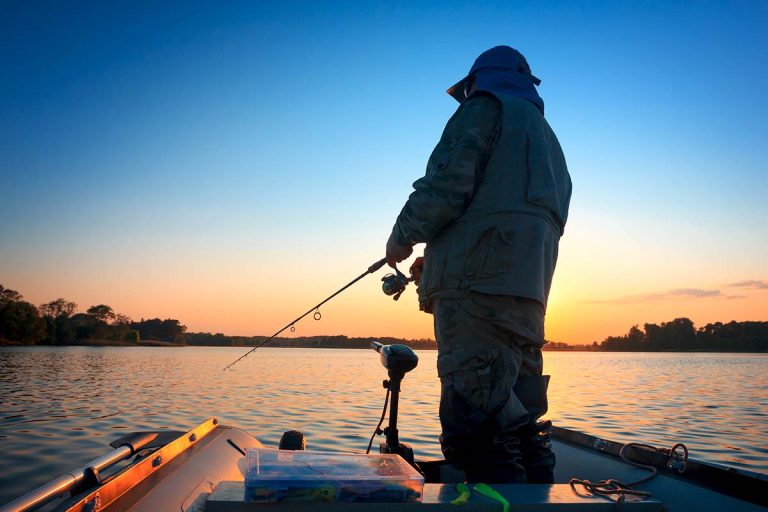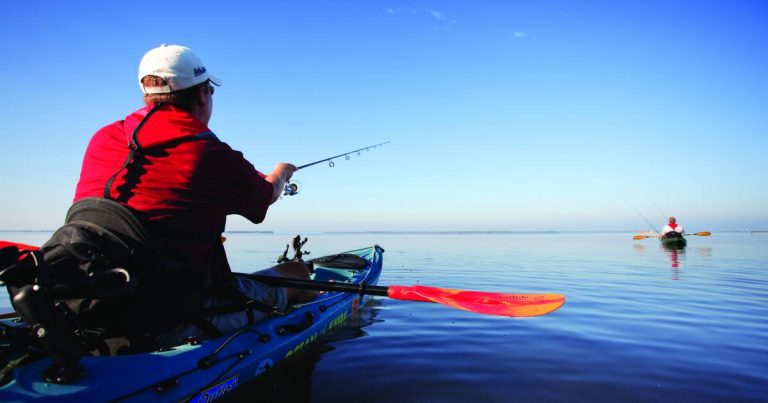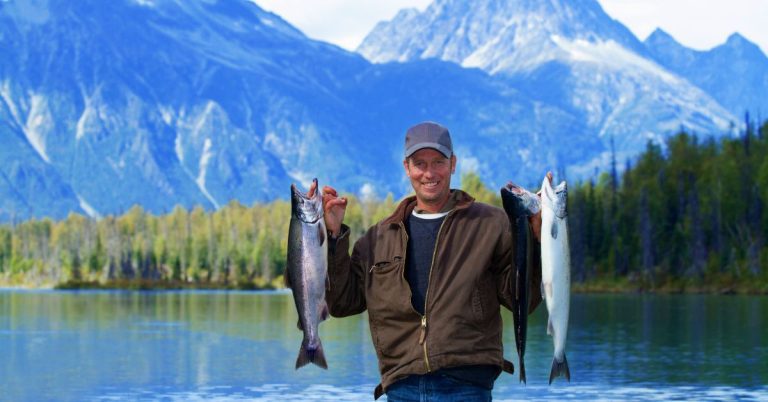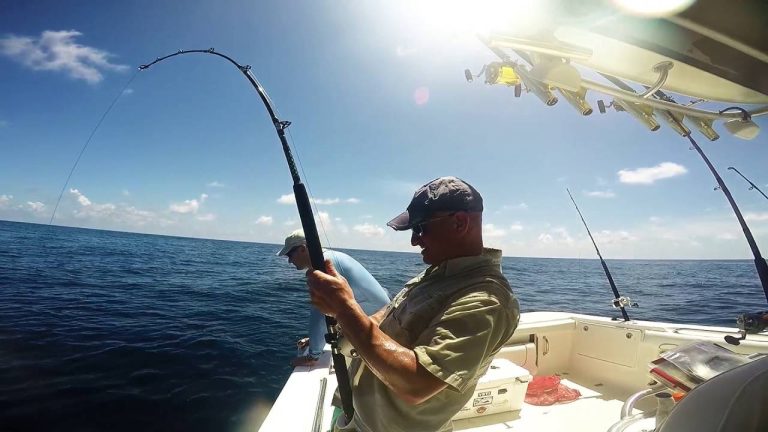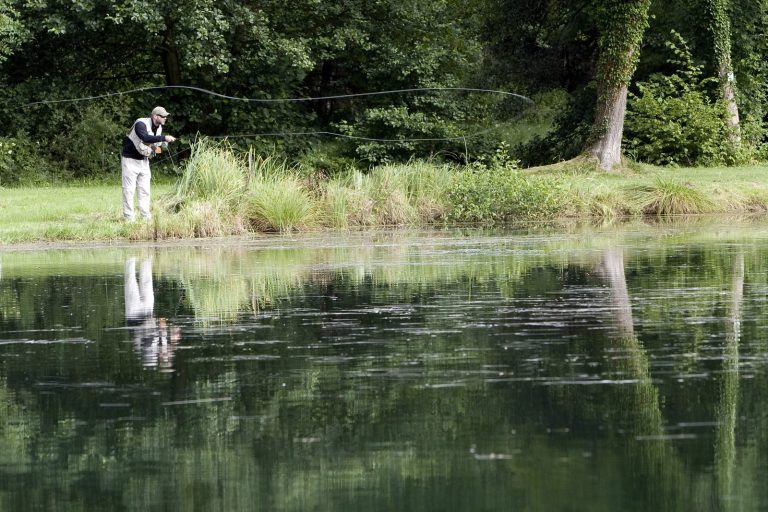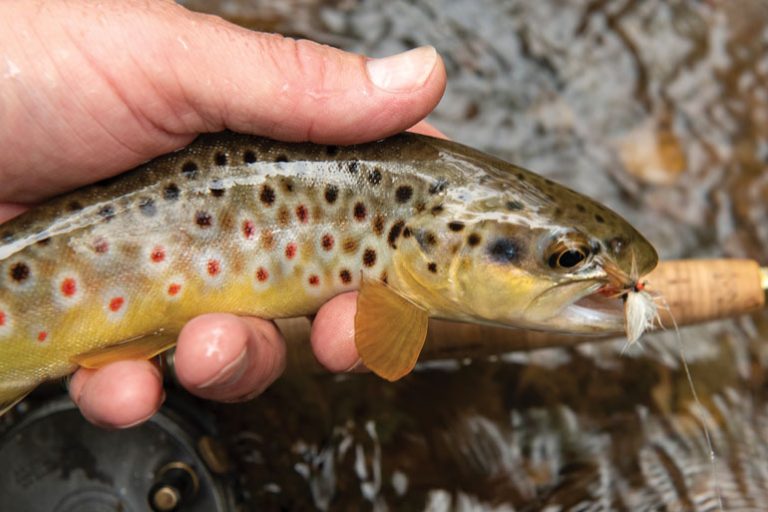Who needs a fishing license in Alaska?
All residents aged 18 or older and non-residents aged 16 or older must purchase and possess a sport fishing license to fish in Alaska’s fresh and salt waters. Residents under 18 and non-residents under 16 do not need a fishing license but must have a harvest record card for species with annual limits.
What types of fishing licenses are available?
Alaska offers several types of fishing licenses for residents and non-residents, including:
- Resident Licenses: Annual sport fishing, low-income, senior, and disabled veteran licenses.
- Non-Resident Licenses: 1-day, 3-day, 7-day, 14-day, and annual sport fishing licenses.
- King Salmon Stamps: Required for fishing king salmon, available in various durations.
How much do fishing licenses cost?
The cost varies based on residency and the duration of the license:
- Residents: Annual sport fishing license costs $29; senior and disabled veteran licenses are free.
- Non-Residents: 1-day license costs $25, 3-day license $45, 7-day license $70, 14-day license $105, and annual license $145. King salmon stamps range from $10 to $100 depending on the duration.
Where can I purchase a fishing license?
Fishing licenses can be purchased:
- Online: Through the Alaska Department of Fish and Game (ADF&G) website.
- In Person: At sporting goods stores, grocery stores, and other retailers throughout Alaska.
- Through Guides and Lodges: Many fishing guides and lodges offer licenses as part of their services.
Do I need a King Salmon stamp?
Yes, if you plan to fish for king salmon, you need a King Salmon stamp in addition to your fishing license. Exceptions include residents under 18, non-residents under 16, and holders of certain resident licenses (e.g., senior, disabled veteran).
What are the different formats for fishing licenses?
Fishing licenses in Alaska come in three formats:
- Printed/Electronic Licenses: Available at ADF&G offices, license vendors, and online.
- eSigned Licenses: Available through your ADF&G account online.
- Carbon Copy Licenses: Handwritten licenses available at select vendors and ADF&G offices.
How long is my fishing license valid?
Most fishing licenses are valid from the date of purchase through December 31st of the same year. Short-term non-resident licenses are valid for the specified number of consecutive days (1, 3, 7, or 14 days).
Do I need to carry a physical copy of my license?
You can carry either a physical or digital copy of your license. However, for species with annual limits, you must have a printed copy to record your harvest. It is recommended to have a printed copy as a backup.
What is a harvest record card, and do I need one?
A harvest record card is required for recording catches of species with annual limits. Residents under 18, non-residents under 16, and certain license holders (e.g., senior, disabled veteran) must obtain a free harvest record card.
How do I purchase a fishing license online?
To purchase a fishing license online:
- Visit the ADF&G website.
- Create an account or shop as a guest.
- Select the type and duration of the license.
- Complete the purchase and print or save the digital license.
Are there any special licenses for seniors or disabled veterans?
Yes, Alaska residents aged 60 or older and disabled veterans can obtain a free ADF&G Permanent Identification Card, which allows them to fish without a sport fishing license.
What are the fishing regulations in Alaska?
Fishing regulations in Alaska include size and bag limits, seasonal restrictions, and specific rules for different species and locations. It is essential to review the current regulations on the ADF&G website or local regulation booklets.
By understanding these frequently asked questions, anglers can ensure they are well-prepared for a successful and compliant fishing experience in Alaska.
Do I need a fishing license to fish in Alaska state waters?
If you are fishing for non-IFQ groundfish exclusively in state waters, you do not need to log your trips or carry an observer. However, if you have any halibut or sablefish IFQ onboard, you must follow federal observer regulations.
Can I surrender my Federal Fisheries Permit (FFP) to avoid observer coverage?
Yes, you can surrender your FFP with some limitations. However, keep in mind that NOAA Fisheries has used landings made under an FFP to determine catch history for catch share programs, so surrendering your FFP may impact future eligibility.
Are there vegetarian, vegan, and gluten-free food options available in Alaska?
Yes, especially in larger cities like Anchorage, you can find restaurants and tours that cater to various dietary restrictions.
